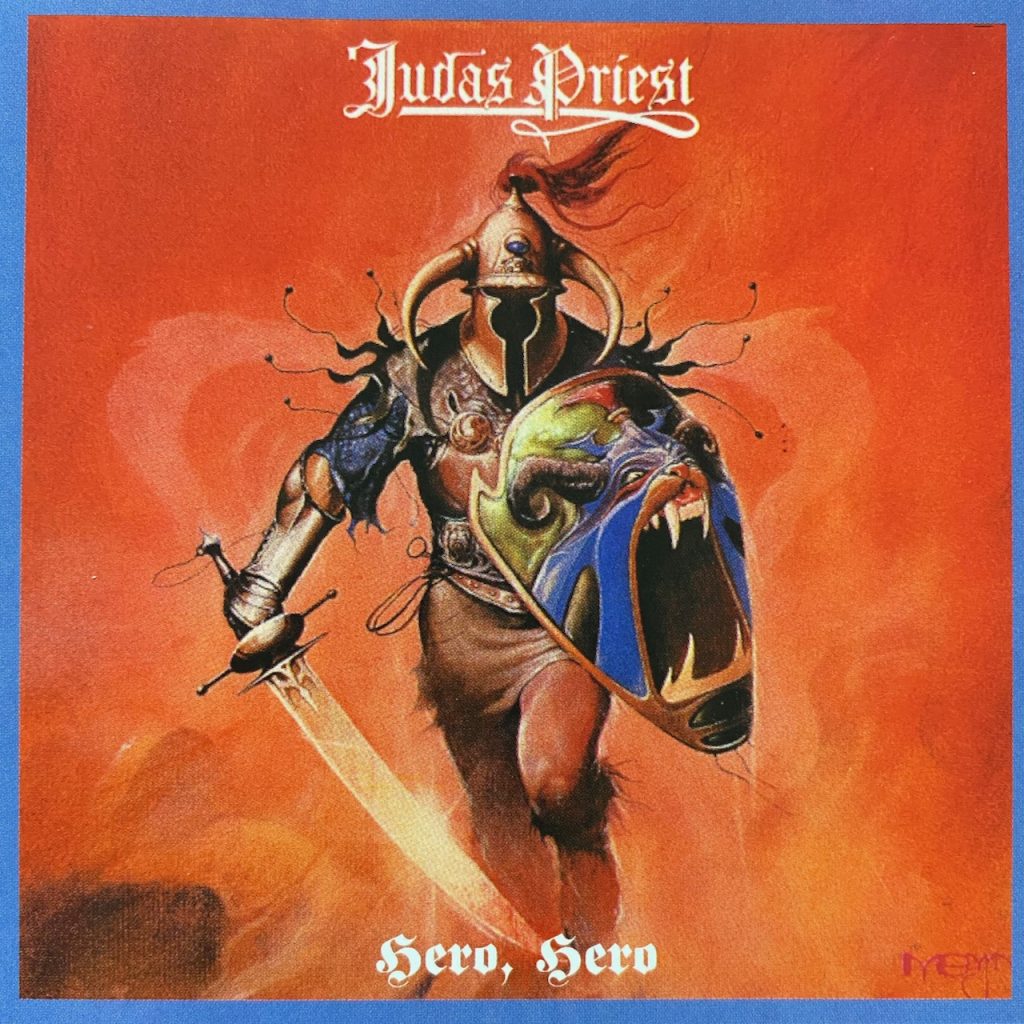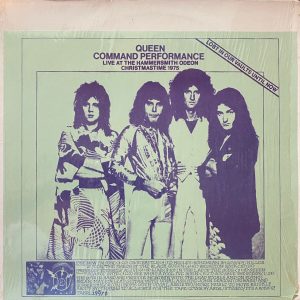
Judas Priest’s ‘Hero, Hero’ (1981) – An In-Depth Review
Published on September 15, 2024, 2 Loud 2 Old Music takes a closer look at Judas Priest’s compilation album ‘Hero, Hero’. Originally released in 1981, this collection came at a time when the British heavy metal band was rising to prominence following their 1980 breakthrough with ‘British Steel’. Seeking to capitalize on this newfound stardom, Gull Records issued this greatest hits compilation, which features tracks primarily from their first two albums, ‘Rocka Rolla’ (1974) and ‘Sad Wings of Destiny’ (1976).
The compilation showcases all the tracks from ‘Rocka Rolla’ and six selections from ‘Sad Wings of Destiny’. A notable aspect of this release is that Rodger Bain remixed the ‘Rocka Rolla’ tracks and the classic hit “Diamonds and Rust,” providing a fresh take on their earlier work. Interestingly, the CD edition I own, a reissue by Koch Records, features the original, unremixed versions of the ‘Rocka Rolla’ songs, making it somewhat less sought after compared to the 1981 version.
The album opens with an instrumental, “Prelude,” which serves as an introduction but lacks direct connection to the following track, “Tyrant.” This piece leans into a baroque style anchored by piano and tom tom drums, with minimal guitar presence, ultimately feeling like a track that could easily be skipped.
“Tyrant,” however, bursts forth with a massive riff and an immediate surge of energy. This is the heavy metal sound that fans expect. Rob Halford’s vocals are impressive, especially in the layered chorus, while the guitar interplay between K.K. Downing and Glenn Tipton delivers a thrill for listeners. Their dueling guitar lines are a highlight.
Next comes “Rocka Rolla,” a more lively track that features multiple solos, showcasing Downing’s guitar prowess and even includes a harmonica solo by Halford. It’s a clear step up in energy from “Prelude” and proves to be an enjoyable listen.
In “One for the Road,” we encounter a bluesy rock sound penned by Halford and Downing; its opening riff radiates classic 70s vibes reminiscent of Black Sabbath and Deep Purple. Halford effortlessly hits high notes, further enhancing the track’s appeal.
“Victims of Changes” stands out as an epic nearly eight-minute composition. Co-written by Halford, Downing, Tipton, and Al Atkins, it opens with a gradual build-up before launching into an intricate double guitar riff. This track is packed with tempo changes and a remarkable variety of moods. Halford’s iconic falsetto, along with his climactic scream towards the end, leaves a lasting impression.
Following that is “Dying to Meet You,” a collaboration between Halford and Downing, but it feels like a misstep. Halford gravitates toward deeper vocal tones that clash with the more forceful guitars, creating a dissonance that detracts from the overall experience. However, the hidden gem “Hero, Hero” emerges at the end of this track, returning to a more straightforward rock sound that feels more aligned with the rest of the compilation.
“Never Satisfied,” co-written by Atkins and Downing, is another track worth noting. Its guitar work displays a distinct Led Zeppelin influence, while Halford weaves in and out of deeper vocal registers, culminating in that signature high range towards the song’s close.
The ballad “Dreamer Deceiver” slows the tempo but maintains interest by integrating blues elements with metal. Its excellent guitar solo fits seamlessly, transitioning us toward the next track, “Deceiver,” which takes a darker approach, evoking a sense of speed metal.
The album dives into progressive territory with the “Winter” suite, which consists of “Winter,” “Deep Freeze,” and “Winter Retreat.” The first part, co-written with Atkins, captures a darker, Sabbath-like atmosphere. In contrast, “Deep Freeze” sustains this distortion before the suite shifts dramatically in “Winter Retreat,” which takes an experimental turn. This abrupt change can feel jarring.
The energy ramps back up with “Cheater,” bringing us back to the blues-rock sound. Its catchy riff combined with the classic rock swagger makes it a standout.
Next, Priest takes on her iconic track “Diamonds & Rust.” This rendition is a remarkable reinterpretation, as Halford delivers a standout vocal performance.
“Run of the Mill” marks a return to longer song structures, presenting a reflective narrative about life choices. This thoughtful piece features a musical interlude that keeps it engaging, even if it’s lengthy.
“Genocide” delivers riff-driven intensity, recalling the sound of Deep Purple, and features aggressive, politically charged lyrics that foreshadow their next album’s title.
Closing things out is the instrumental “Caviar and Meths.” At only two minutes, this track feels underdeveloped, lacking the depth it could achieve.
In conclusion, ‘Hero, Hero’ presents a collection of songs that, while occasionally lacking coherence, showcase Priest’s talents. These tracks are enjoyable and serve as a glimpse into their earlier innovation. Ultimately, this compilation may feel unnecessary for some, given that it prompts listeners to seek out the original albums. However, it does have its charms, marking a collector’s item that die-hard fans might appreciate. I’d give it a rating of 3.0 out of 5.0 stars, as the songs still resonate, though it feels somewhat dispensable in the grand scheme of Priest’s discography.
Fun Fact: The album cover used for ‘Hero, Hero’ is the same design used for a Kiss bootleg titled ‘Barbarize’ that was released around 1985.






